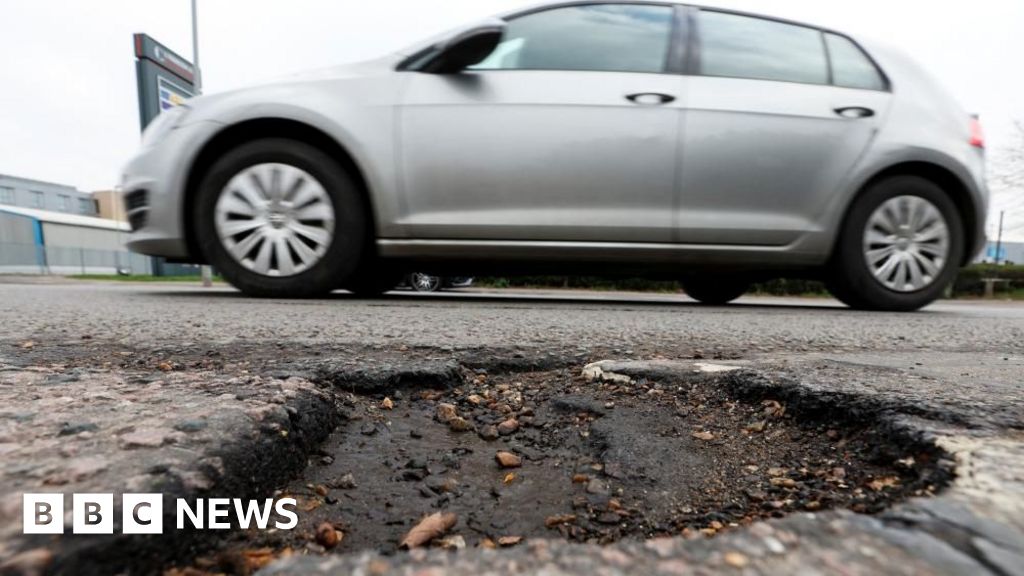The cynical spectre of Osbornomics is haunting the Labour party | Aditya Chakrabortty
- Politics
- August 1, 2024
- No Comment
- 139
A spectre is haunting Rachel Reeves. It has the tonsure of an abbot and a jawline kept taut by intermittent fasting, but any trace of asceticism is dispelled by its perma-smirk: a half-smile, half-jeer that taunts “I’ve got one over you!” It is the spectre of George Osborne.
I am not the only one to see his shade. Other commentators have observed this week how the new chancellor has copied her predecessor’s trick of beaming over the threshold of No 11, before scowling like Captain Renault and claiming to be Shocked! Shocked! at the debauchery inside.
Osborne decried “thirteen years of fiscal irresponsibility” when he became chancellor in 2010; Reeves fulminates against “fourteen years of … economic irresponsibility”. Just weeks after taking office, Osborne unveiled an “emergency budget”; moving even faster, Reeves has just launched a “public spending audit”. He vowed to “fix the roof”; Reeves pledges to “fix the foundations”.
Westminster may applaud this as excellent sport; for the rest of us, the problem is the rules by which it is played. Reeves is doing more than lifting tactics from a master tactician. Mr Austerity is also providing her framing and logic.
Mimicking Osborne, she attacks her opponents for “maxing out the credit card”. She likens one of the richest economies in the world to families scrabbling around for grocery money: “When household budgets are stretched, families have to make difficult choices. And government needs to do the same.” And where he railed against Gordon Brown’s “broken Britain”, she accuses Rishi Sunak of leaving a Britain that is “broke and broken”.
Even when these phrases were first used in 2010, they struck me as being among the most cynical in our political lexicon: some of the wealthiest men in Britain feigning knowledge of what it’s like to live on modest means to justify taking money from the poorest households.
Then a new backbencher, Reeves caught her opponents deploying these falsehoods day after day at the dispatch box. An economist, she needed no tutoring in their lies – that, unlike individuals, nation states don’t retire or die; that no household hides a government’s printing press or tax department in its loft conversion; that most families do borrow to invest (for what else is a mortgage?) and will spend cash to keep kids from going hungry. She saw how such analogies were flung about as paper-thin excuses for making fellow Britons poorer, for closing Sure Starts and libraries and starving hospitals and schools of funds. Perhaps the biggest growth Britain saw in the 2010s was in food banks, from 35 provided by the Trussell Trust at the start of the decade to nearly 2,900 in total today.
As Reeves argued in her Mais lecture this March, austerity did “severe damage to our social fabric and to our public services” and the Tories’ failure to borrow to invest “was an act of historic negligence”. Yet 14 years later, we get the same language. This week it was in aid of cutting more than £5bn from this year’s public spending, in winter-fuel payments, cancelled hospitals and railway work. That won’t be the last of it. In three months’ time, the chancellor will be back for another £16bn, largely in tax rises.
None of this is to argue that Labour is simply offering the same old reverse-Robin Hood economics. The Tories wouldn’t have agreed decent pay rises for junior doctors, nurses and teachers (although teachers are still paid 9% less than they were in 2010, so they deserve more). Here’s another big, but almost unnoticed difference: in his emergency budget of 2010, Osborne made £3 of spending cuts for every £1 he clawed in tax rises. Reeves looks to be doing the inverse: a quid of spending cuts for £3 in extra taxes.
But by using the analogies and arguments of their opponents, Reeves and Keir Starmer are strapping themselves into a political straitjacket. How can they argue for more billions for public services after arguing that tax is merely a burden on hardworking families? How will they claim that public servants know best about funding schools and hospitals, after Reeves has implicitly accused Whitehall of helping Jeremy Hunt spend like a sailor on shore leave? Billions have gone down the drain on asylum seekers’ accommodation and the Rwanda botch-job, and said drain was located in the Home Office, while Treasury mandarins would also have had oversight of the misspending. This is boggy terrain for a progressive politician arguing for the value of the public sector.
Osborne and David Cameron knew the value of crafting an argument and repeating it over and over. Take the two-child benefit cap: Cameron began floating the notion in speeches as far back as 2012; Osborne drafted the policy in 2015; Theresa May launched it in 2017. In 2024 what experts call “the worst social security policy ever” is still with us.
Compare this with the early signals from Labour. Britain has suffered chronic underinvestment for decades, yet first in the bin go investment projects. Public services are failing, and there remains a £20bn shortfall every year in funding them – and yet the government has foresworn raising serious money by promising no rise in any of the big taxes. The public demands change, but mainly gets a change in tone.
Continue down this road and the likely outcome is that public services continue to fail, even while taxes remain high. Labour will do some good things, but by stealth – when it thinks it can get away with it. Come the next election, Nigel Farage will be rubbing his chubby pink hands together.
There was another spectre at Reeves’s shoulder this week: John Maynard Keynes. It was he who argued on the BBC in 1942 for a wholesale reimagining of Britain’s bombed-out public realm. Your nearest city, he said, deserved “a local centre of refreshment and entertainment with an ample theatre, a concert hall, a dance hall, a gallery, a British restaurant, canteens, cafes and so forth. Assuredly we can afford this and much more. Anything we can actually do we can afford … We are immeasurably richer than our predecessors,” he pointed out, adding: “Is it not evident that some sophistry, some fallacy, governs our collective action if we are forced to be so much meaner than they in the embellishments of life?”
Reeves clearly knows this passage because in parliament this week she inverted his line. “If we cannot afford it, we cannot do it,” she repeated, as if the future was a project to be cancelled. But Keynes’s question remains the most pertinent one. After over a decade of spending cuts, of lacklustre growth, of betting the house on finance boffs and tech bros in overpriced gilets – after the failure of Osbornomics, in other words – how do we still not have enough? It’s time for change – and that surely begins by putting this cynical language where it belongs – in the bin.
#cynical #spectre #Osbornomics #haunting #Labour #party #Aditya #Chakrabortty









